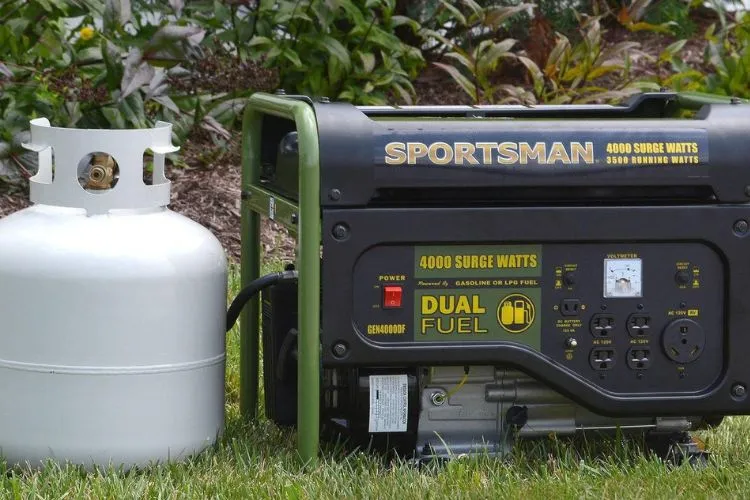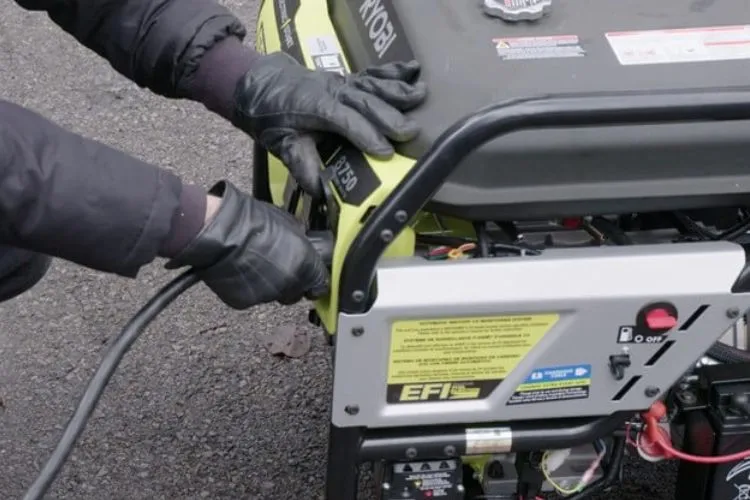As the world edges closer to a more sustainable future, the focus on fuel economy extends beyond vehicles to include small generators.
These handy power sources are lifelines during outages but can be costly to run. This guide will help you understand how to reduce fuel consumption in small generators.

How To Reduce Fuel Consumption In Small Generators?
Regular maintenance is crucial. A well-maintained generator uses fuel more efficiently. Start with routine checks and servicing. Regular inspections can catch issues before they increase fuel consumption.
Cleaning and replacing air filters is another simple yet effective step. Dirty filters restrict airflow, forcing the generator to work harder and use more fuel.
Similarly, oil changes and spark plug inspections should be part of your maintenance routine. Clean oil reduces internal friction, while functional spark plugs ensure smooth operation.
Optimal Usage Strategies
Running your generator at its recommended load capacity is wise. Generators consume more fuel under or over their optimal load. Balancing your power needs prevents wasteful consumption.
Staggering power usage can also help. Instead of powering all devices simultaneously, prioritize critical ones to avoid overloading the generator.
Technological Tips for Fuel Reduction
Innovations offer further fuel economies. For instance, fuel additives can improve efficiency by cleaning and lubricating the engine’s internal components.
Upgrading to more efficient carburetors optimizes fuel and air mixture, improving combustion and thus fuel efficiency.
Environmental Conditions and Their Impact
Generators are sensitive to their operating environment. Extreme cold or heat can affect their efficiency.
Operating your generator within recommended temperature ranges ensures optimal performance.
Shielding your generator from harsh weather can also prevent unnecessary fuel consumption.
Pro Tips: Getting the Most Out of Your Fuel
The placement of your generator can affect its fuel consumption. Positioning it in a location that maximizes airflow can improve efficiency. Using fresh fuel is also crucial.
Over time, fuel degrades and can clog the fuel system, causing the generator to run inefficiently. Understanding the benefits of smart generators can be a game-changer.

These modern devices automatically adjust their output based on the load, significantly reducing fuel consumption when full power isn’t needed.
You may also find useful: Diesel Generators Vs UPS Systems | Are Diesel Generators Better Than Petrol Generators
Tools and Accessories for Fuel Management
Fuel meters and monitoring systems help track consumption, providing insights into your generator’s performance.
After-market upgrades can also improve efficiency. Settings adjustments, like fine-tuning the carburetor, can result in noticeable fuel savings.
Advanced Technologies in Generator Design
In the realm of generator technology, advancements have aimed at enhancing fuel efficiency, critical for both economic and environmental reasons.
Among these innovations, variable speed engines stand out. Traditional generators operate at a constant speed, irrespective of the load. In contrast, variable speed engines adjust their speed to match the load demand.
This dynamic adjustment means the generator only uses the amount of fuel necessary for the task at hand, significantly reducing wastage.
Equally transformative are electronic governors, which have replaced mechanical counterparts in controlling the engine speed and the voltage output.
These sophisticated systems precisely regulate the fuel injection process, ensuring that the engine runs at optimal efficiency.
By minimizing fuel consumption and improving the generator’s response to changing loads, electronic governors contribute to a seamless, efficient operation.
Together, variable speed engines and electronic governors represent a leap forward in generator design.
They not only cater to growing demands for fuel efficiency but also pave the way for a future where generators can deliver necessary power without the environmental burden associated with excessive fuel use.
Economic Implications of Fuel Choices
The choice of fuel for generators is a critical decision that significantly impacts operational costs over time. Fuel prices are subject to fluctuations due to market dynamics, geopolitical events, and changes in demand and supply.
For instance, diesel and gasoline, two common fuels for generators, often see price volatility, which can lead to unpredictable operating costs.
Availability is another crucial factor. In regions where certain fuels are more readily available, the costs associated with them might be lower due to reduced transportation and supply chain expenses.

Conversely, in areas where a fuel type is scarce, costs can skyrocket, making it an impractical option for sustained generator use.
For generator users, understanding these economic implications is vital. Opting for a fuel type that is both reasonably priced and readily available in their locale can lead to significant savings in the long run.
Additionally, considering the generator’s efficiency with different fuels can further optimize expenses. For example, some generators run more efficiently on propane than on diesel, translating into lower fuel consumption and, consequently, reduced costs.
By analyzing fuel prices and availability, users can make more informed decisions, selecting fuel types that ensure the efficient operation of their generators while minimizing financial outlay over time.
Frequently Asked Questions (FAQs)
How can I adjust my generator’s carburetor to reduce fuel consumption?
Adjusting the air-fuel mixture for optimal combustion can reduce fuel use. It’s best done by a professional to avoid damaging the engine.
Do generators use less fuel with less load?
Yes, using your generator under its capacity typically means it consumes less fuel. However, very low loads can also be inefficient.
Why might my generator be consuming too much fuel?
Several factors could cause this. Lack of maintenance, using the generator at inappropriate load levels, or operating it in unfavorable environmental conditions are common causes.
Understanding the Role of Generator Load in Fuel Efficiency
One of the most important factors influencing fuel consumption in small generators is the load under which they operate. Generators are designed to run most efficiently at a specific load range, typically between 70-80% of their rated capacity.
Running a generator at too low of a load can lead to poor fuel efficiency, as the engine runs too slowly to burn fuel efficiently.
On the other hand, pushing a generator to its maximum capacity can result in increased fuel consumption and strain on the engine, potentially reducing its lifespan.
To optimize fuel efficiency, it’s essential to match the load demand to the generator’s capabilities. If possible, plan your power usage so that the generator operates within its ideal load range. This can be done by staging the activation of devices or distributing power requirements over time.
Fuel Storage and Handling Tips
Fuel management extends beyond consumption during operation. Proper fuel storage and handling play a significant role in maintaining generator efficiency. Storing fuel correctly prevents degradation and contamination, ensuring that the generator continues to run smoothly.
Using fuel stabilizers can help prolong the life of stored fuel, particularly if it’s stored for extended periods. Additionally, always ensure fuel tanks are kept clean, as contaminants can clog filters and decrease engine performance. Regularly inspecting and maintaining fuel tanks also prevents leaks and helps avoid unnecessary wastage.
In regions with seasonal weather changes, consider storing fuel in climate-controlled areas. Extreme temperatures can cause fuel to degrade more quickly or affect the performance of your generator.
Fuel Type Considerations for Maximum Efficiency
Choosing the right fuel type for your generator can have a significant impact on its fuel consumption. While diesel is often praised for its efficiency and long runtime, gasoline can be more suitable for small, portable generators.
However, fuel blends such as ethanol or biodiesel may offer cleaner alternatives with varying levels of efficiency.
It’s important to understand your generator’s compatibility with different fuel types and choose the one that best suits your needs, balancing both performance and fuel efficiency.
Conclusion:
Reducing fuel consumption in small generators isn’t just about saving money. It’s a step towards sustainable living.
Regular maintenance, optimal operation, technological upgrades, and a mindful approach to usage can all contribute to more efficient fuel use.
By applying these practices, you can maximize the efficiency of your generator, ensuring it serves you well into the future without unnecessary expense or environmental impact.
